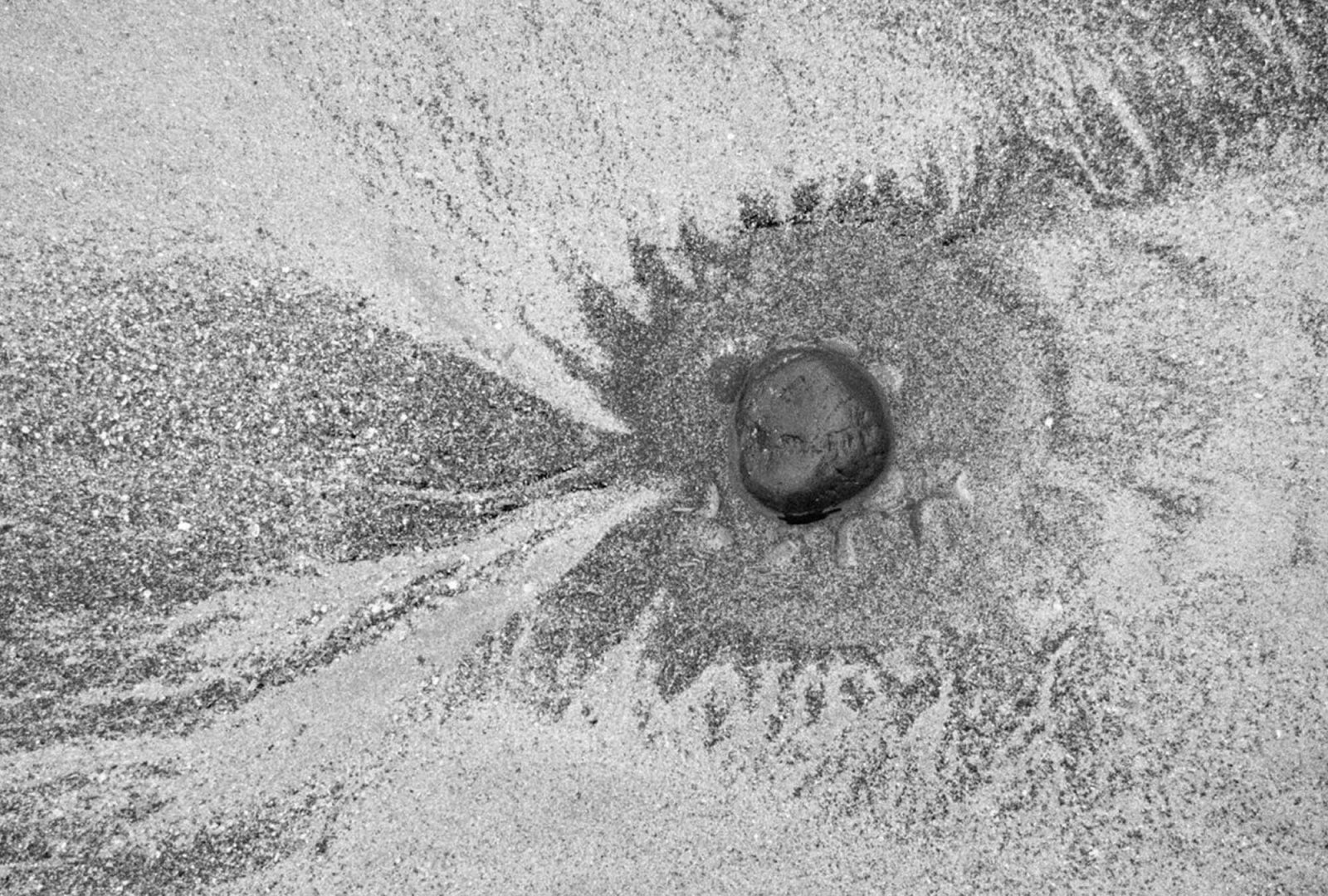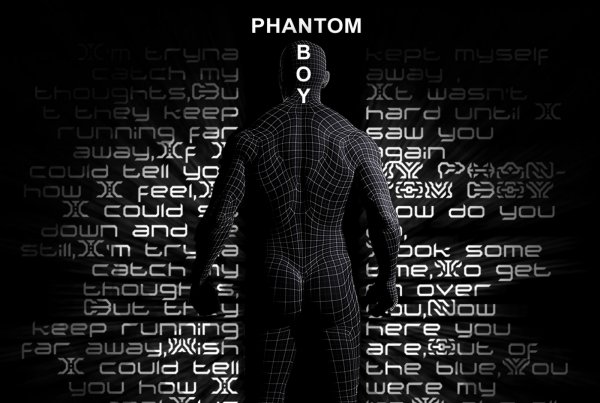New Album Release From Four Tet
New music from UK producer and DJ Four Tet (Kieron Hebden) is always eagerly anticipated in electronic and dance music circles, and his brand new 14 track long player New Energywas eagerly snapped up by his dedicated fanbase when released last week.
New Energy is the follow up to 2015’s 2-track found-sound Ableton jam Morning/Evening. It’s been a busy couple of years since then, with Hebden remixing artists like Rihanna and Jamie xx and collaborating with Roots Manuva and Omar Souleyman as well as putting out a stream of 12” vinyl releases and honing his formidable DJ skills.

Four Tet (Kieron Hebden)
Electronic music more than any other genre has always treasured anonymity, with producers hiding their true identity behind multiple aliases and personas or, in the case of Deadmau5, Daft Punk and Marshmello behind actual masks. Many electronic producers and artists say they let their music do the talking, but few actually make music of a high enough quality for this to be enough. If you make generic trance or tech house and you simply let your music do the talking then it’s only going to say doof, doof, doof. But Hebden produces music so unique and idiosyncratic, he has no need of any associated hype or PR.
New Energy, just like the rest of Hebden’s work, is in continual motion, the 14 tracks shifting from beatless pieces, to downtempo to house and techno BPMs - unlike many other electronic acts, his music spans a broad range of tempos, rhythms and styles, often in the same track. Each song contains its own dynamism too as there is always a sense of movement and progression as they unfold. Hebden is not restricted by genre rules and often plays with convention (like releasing an album of only two tracks à la Morning/Evening) and often treats the listener to songs that are less than two minutes, which are sometimes perfectly formed small pieces of musical memories, and sometimes just little tasters of songs that could have been.
So it is with opener Alap, which instantly confounds the listener with its 5-second analogue dreamy pad intro which suddenly stops as Hebden introduces those sampled acoustic plucks and strums which he’s utilised to such great effect before. Alap promises much but then disappears as quickly as it arose and morphs straight into the blunted beats, deep bass and pads of Two Thousand and Seventeen, which also features similar string plucks. Musically the notes and rhythm are a wonderful hybrid that sounds part Indian, part cockney piano. Hebden has always been adept at this kind of sonic placelessness and happily smudges the edges of geographical and musical signifiers in a way that transcends genre. Two Thousand and Seventeen finishes by gently descending from its sleepy melancholy groove into abstract noise and minced samples.
There’s a sense of development to the album opening, its as though the first three tracks of New Energy have been re-introducing us to elements of the Four Tet sound one by one - first that distinctive acoustic pluck sound, then the restrained hip hop-esque beats and bass and the third track LA Trance adds the UK street influence with characteristic fat, itchy beats - part UK Garage/Grime, part future-Detroit. LA Trance adds more synths, cleverly melding together little arpeggios, mutating synth lines and vocal samples that have been sliced and diced beyond recognition.

Fourth track Tremper is the second of five that come in under two minutes and shows that Hebden is not averse to occasionally using a non-abstract sample to evoke emotion. In this case, it’s birdsong and what sounds like footsteps through long wet grass that set the scene before the Nu-new-age synths and vocal echoes appear, acting as a sonic palette cleanser before the aptly titled Lush. Featuringminimal restrained house beats layered under a beguiling build up of chimes and gamelan, its twitchy synths distantly recall Smoke Belch by Sabres of Paradise.
Scientists is also a 4/4 track, containing a wandering riff that doesn’t know if it’s from Berlin or Detroit, wistful melancholy synth washes, more of those lovely production touches - like the splatter of overdriven percussion at 1.49 - and a set of superbly warped vocal samples. Tracks like this showcase Hebden’s fearlessness at taking a minimal, moody house track and building it into an ecstatic jazz work out. Lots of producers can do deep-bass somnolent sleepy beats but how many can effortlessly slip into moments of cosmic transcendence in the same track?
Beatless snippet Falls 2 precedes You Are Loved, which sounds like an outtake from Aphex Twin’s Selected Ambient Works 85-92, possessing that closeness and intimacy of some of Aphex Twin’s warmest analogue noodlings but with a lighter, more wistful touch.
The same synth chord that opened the album also opens SW9 9SL (the postal code for London live venue Brixton Academy in case you were wondering), nearly eight minutes of gauzy, atmospheric house, its intricately programmed mutating parts perfectly stitched together into a greater whole. And it features a frankly luscious, lengthy breakdown of interlinking synth lines and chords, which, for a lesser producer, would contain enough musical ideas for at least a few tracks. And that bass when it finally drops tho… It’s a completely involving piece of music, and its sudden ending is jarring.
10 Midi assembles a number of pretty elements, displayed like a child carefully placing their favourite toys on the rug for you to see; sampled strings, synths and keys all move around each other in a carefully choreographed dance. It’s in the same key and finishes on the same chord as the next track Memories, which is a pastoral journey through new age synths and harp samples, all warmth and light. It meanders along dreamily until halfway through you are suddenly dropped into a near-pitch black warehouse rave at 3 am for a couple of minutes before being whisked back into the warm sunlight.

Cardboard box beats underpin the warped vocal samples of Daughter, but once the synth chords effortlessly drop in underneath, it mutates into a dreamy, twinkling grime lullaby. Album finisher Planet is another matter entirely, built on on the toughest 4/4 beat of the whole album and made up of strange percussion and a whirl of intermeshed synth parts. It’s a psychedelic, global concoction, with the smallest of stylistic nods to Indian ragas amid the deep bass and Detroit-derived groove.
Overall, New Energy shows Hebden’s musical restlessness, continued development and refinement of his musical ideas but it’s also something of a consolidation too. Elements that we’ve heard on his other albums - the plucked strings and twisting of folk and ‘world’ influences into his particular aims, the sublime beatless pieces that precede tough beats, the hints of jazz, psychedelia, blunted beats, of grime and techno - they’re all present, being constantly rearranged into new forms.
New Energy is a collection of indistinct moods, full of melancholy and blurred edges. Its emotion is contained in either the juxtaposition of the musical elements or in the notes and chords themselves, rather than in any lyrical content. All vocals are affected and corrupted beyond any recognition, all you are left with are the abstract textures, the effect of one sound next to another and the impact of melding and twisting genre elements. It’s a testament to the strength and quality of Hebden’s production that such abstract music can hold such a powerful emotional charge.

New Energy is available to stream on Spotify.




